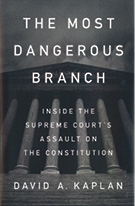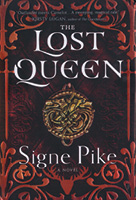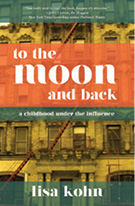 |
Kaplan, a former legal affairs editor at Newsweek, analyzes what he sees as the perilous excesses of the nation’s highest court—which has established the law of the land on such monumental topics as abortion, campaign finance limits, voting rights, gun control, and gay marriage. “Today,” he writes, “liberals and conserva-tives alike blithely rely on the Court to settle society’s toughest issues—at the expense of the two branches of government that are designed to be democratic.” In a review, Kirkus called the book “an informed discussion of a serious issue,” while acknowledging that it “may be too easily dismissed for its intrusive [liberal] partisan bias.” A graduate of NYU law school, Kaplan previously published The Accidental President, a look at the 2000 election on which the HBO movie “Recount” was partly based.
|
 |
In his first novel, Burgess—a legal scholar and history professor at Yeshiva University—unspools a mystery in the Rhode Island seaside village of Little Compton, near where his own family has lived for centuries. When his protagonist, an academic facing a professional crisis, returns to his hometown to care for his ailing grandmother, he learns that her next-door neighbor and best friend has been murdered. But since his grandmother suffers from dementia—as he puts it, in her “cockeyed world it could be high noon or three a.m., yesterday or 1957”—she makes an unreliable storyteller, not only of the recent death but of long-ago events and deeply held family secrets. “Elegant prose, a veritable Chinese box of puzzles, and authentic, well-rounded characters make this a standout,” says Publishers Weekly.
|
 |
Holmes’s third poetry collection is subtitled Tahiti in the Era of Captain Cook, and in it she reimagines the first encounters between European explorers and South Pacific islanders in the eighteenth century. The volume is informed by her extensive reading of the historical record, including the journal James Cook kept while commanding the Endeavor. As she writes in the first poem, entitled “Prophecy”: “Something strange was coming— / huge, with lights on it, / moving across the sea. / Were the beings on it people, / or ancestors, or gods?” An Ithaca resident, Holmes is also the author of several novels for middle-grade readers.
|
 |
An associate fellow at the Washington, DC-based Institute for Policy Studies (and co-editor of its website, inequality.org), Pizzigati has spent nearly three decades advocating for a ceiling on how much money any individual American can make, such as limits on executive pay. But in the meantime, he notes, the gap between the income of CEOs and their average worker has only widened. “I can’t seem to stop,” he writes in his most recent book on the subject. “That may be because the societies I know best keep getting more unequal.” In this slim paperback, Pizzigati offers a history of how the income gap narrowed in the mid-twentieth century—in large part due to extremely high taxes on the rich—before widening again in recent decades. He also ponders the viability of an income cap, in a chapter entitled “Pipe Dream or Politically Practical Project?”
|
 |
Pike’s novel, the first in a planned trilogy set in Arthurian times, is based on a real-life character: Languoreth, a sixth-century Celtic queen who was the twin sister of the man who inspired the Merlin myth. The setting and plot—which involves thwarted love, feudal politics, a quest for power, and the emergence of Christianity—has prompted comparisons to such historical fantasies as Outlander and The Mists of Avalon. “Once we were a people who held no fear of death,” she writes, in Languoreth’s first-person narration. “But that was before the Romans came. Before our warriors were cut down and our fields watered with blood.” A former CAM intern, Pike previously authored the travel memoir Faery Tale: One Woman’s Search for Enchantment in a Modern World.
|
 |
“If writing is an evacuation tool to process and understand abuse,” says Kirkus, “Kohn has done an excellent job of producing a text that oozes with honesty and truth.” In her memoir, Kohn—now a leadership consultant and executive coach—recalls her unconventional childhood. She was raised in New York City by “flower child” parents active in the counterculture, and she eventually became deeply immersed in the Unification Church, a cult also known as the “Moonies.” Later, she struggled with eating disorders and drug use. “My brother says we were raised by wolves,” Kohn writes. “I don’t always agree with him, but I don’t have a more accurate description of our upbringing. A friend of my dad’s pointed out that wolves raise their young with more structure than our parents gave us.”
|








